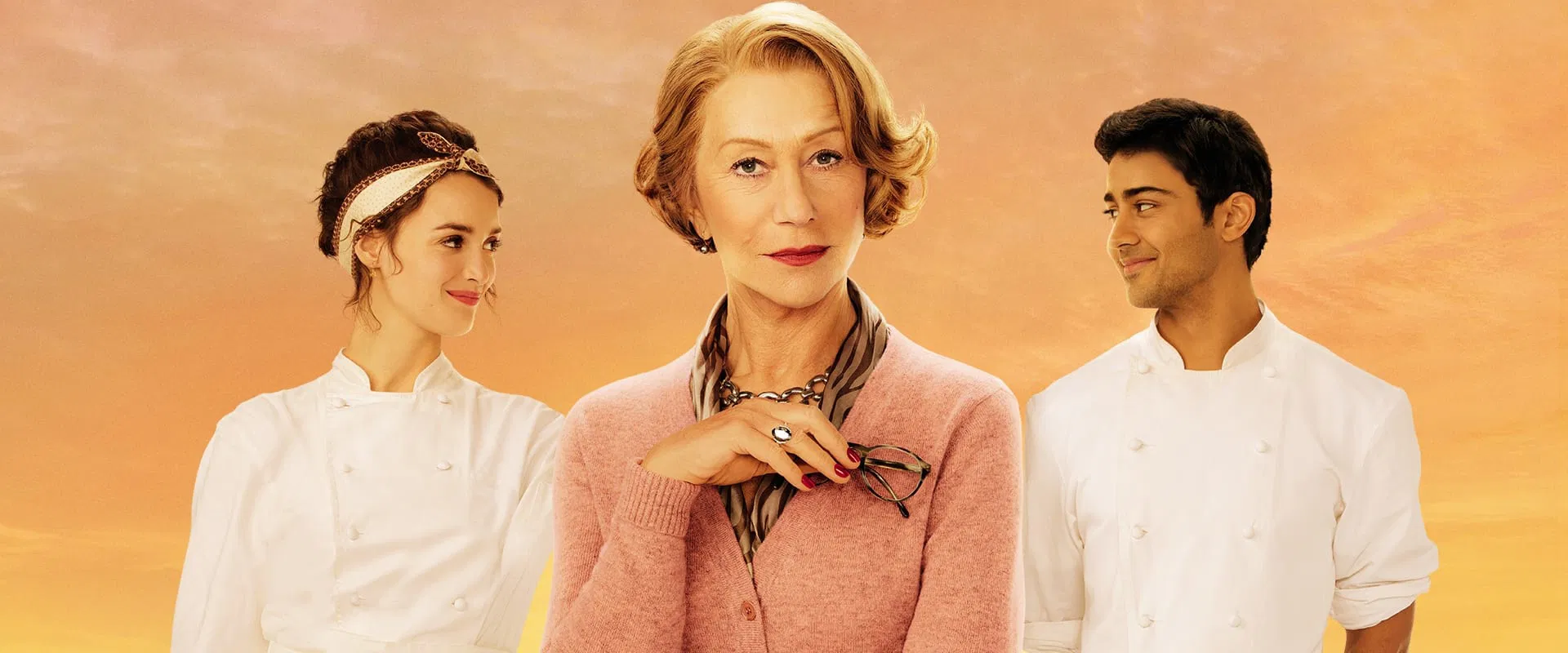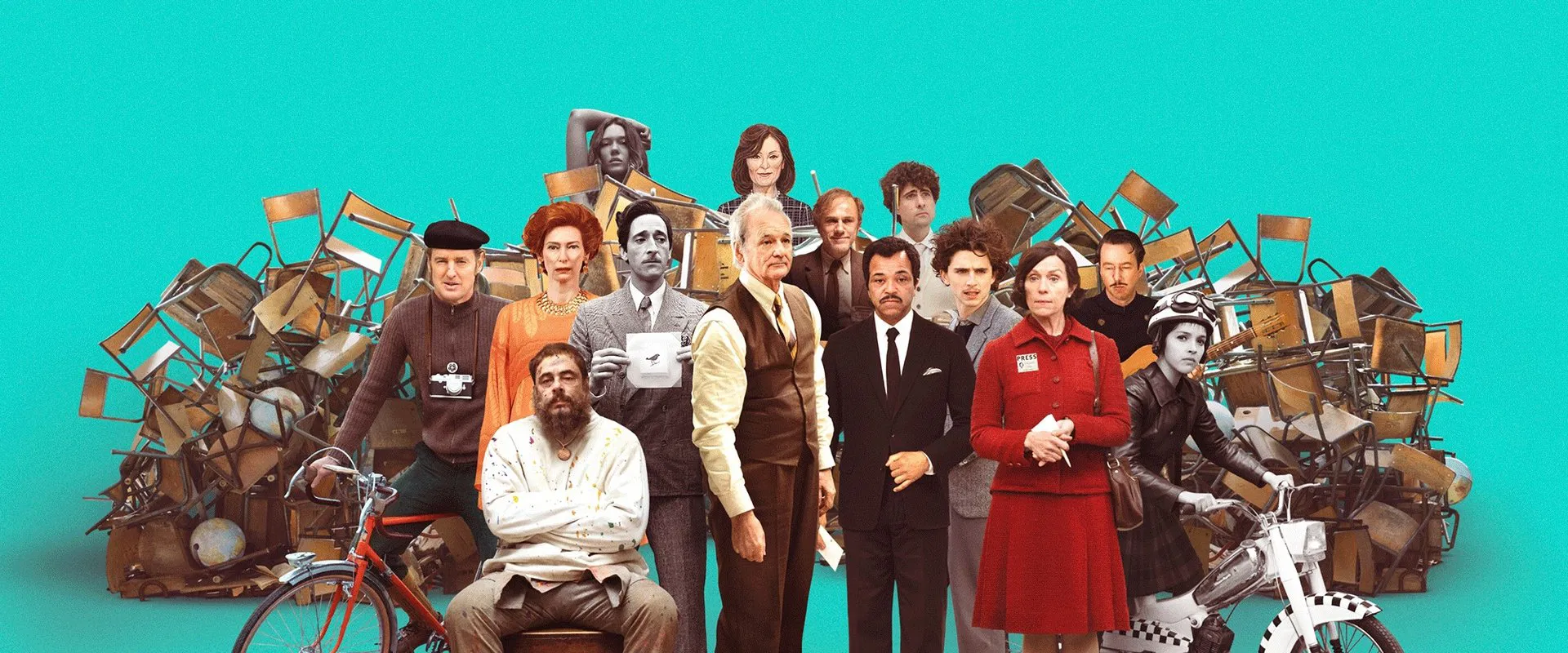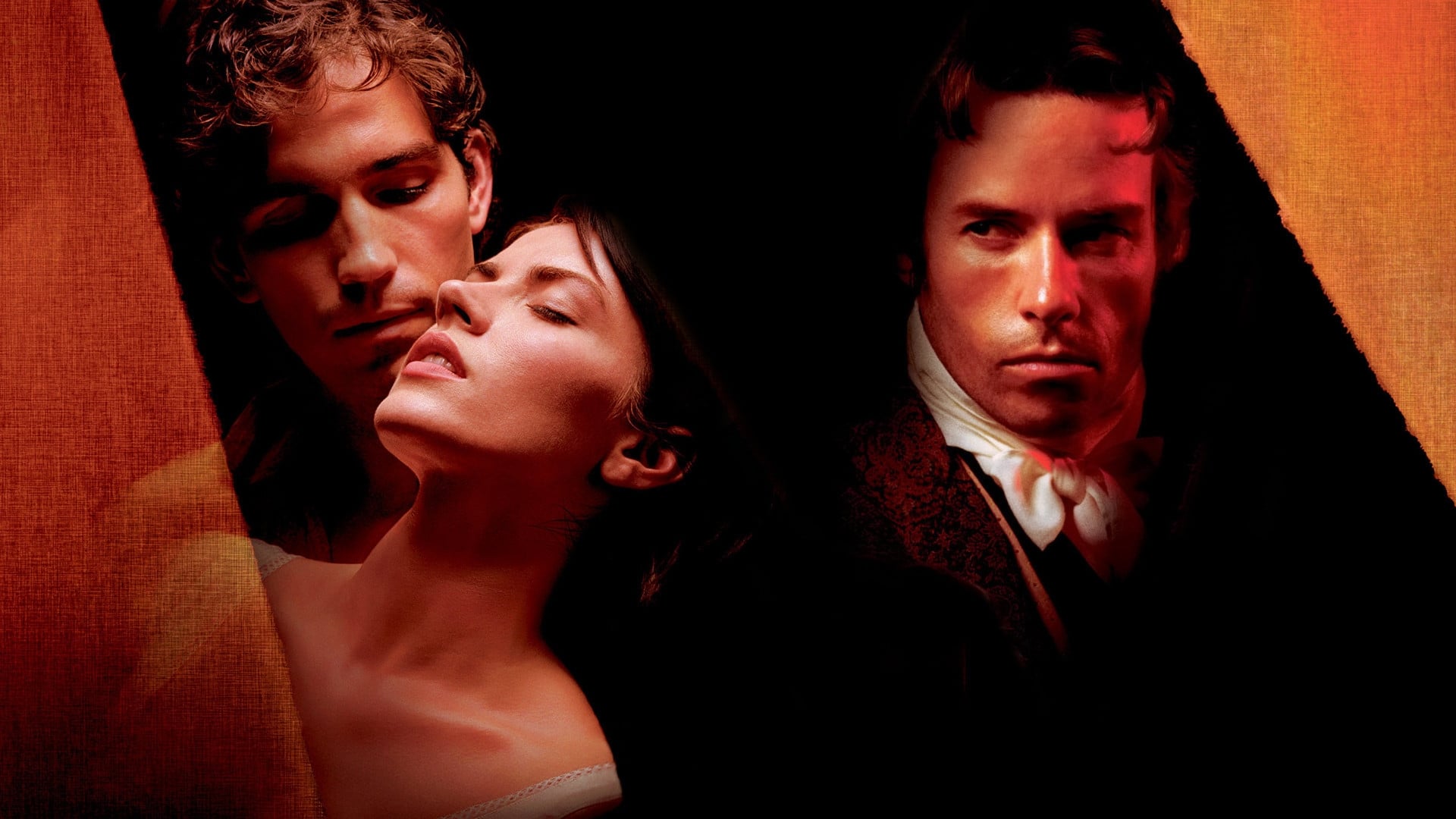The Hundred-Foot Journey isn’t so much a movie as it is a lavish buffet—one of those spreads where you get a little giddy piling your plate high, knowing full well it’s all been sweetened for mass tastes. Lasse Hallström, who has become a sort of cinematic caterer to the comfortable (he’s given us Chocolat and enough charming Swedes to fill a Volvo), brings his gentle hand to the story of culinary warfare in a twee French village—warfare here meaning a territorial pissing match with garam masala.
This is the kind of picture produced for the soft-focus crowd, with Steven Spielberg and Oprah Winfrey hovering above the stove, each determined to keep the soufflé from falling flat or turning boozy. Based on Richard Morais' novel, the movie makes a saintly case for food as the great unifier, and—miracle of miracles!—predicts that two restaurants a hundred feet apart might melt away centuries of cultural apprehension with a dollop of hollandaise atop curried cauliflower.
The plot could have been stitched together by Julia Child and Bollywood: The Kadam family, led by Om Puri’s wonderfully blustery Papa, tumble into a lavender-dipped corner of France and plant Maison Mumbai across the street from Madame Mallory’s stuffy, starched Le Saule Pleureur. The battle lines are drawn in clarified butter, but even before the second act we know, with the certainty of a well-worn recipe card, that everyone will pass around the chutney by the final reel.
Manish Dayal’s Hassan is a protagonist straight out of the Hallmark School of Earnest Youth—so polite, so quietly radiant, it’s as though he’s afraid to break a dish or a stereotype. His rise from Mumbai sidewalk cook to almost-mythic Michelin prodigy is a minor miracle of cinematic shearing: the movie trims off every rough edge that might interrupt the steady upward climb. Om Puri does what he can to inject a little earthy spice, turning every line into a gentle jab, and you can almost taste the real-world stubbornness under all the familial affection.
Helen Mirren, as Madame Mallory, is regal as ever, her hauteur curdling into reluctant mentorship before your very eyes. Watching her thaw is like watching a meringue wilt in slow motion—you believe her surface, but the script never lets you dig beneath the crust. By the time Mirren and Dayal are engaged in their subtle, saffron-inflected pas de deux, you long for more of the tartness she brought to The Cook, the Thief, His Wife & Her Lover; here, she’s mostly tasked with perfect posture.
Charlotte Le Bon simmers reliably as the gallic Marguerite—she and Hassan share the sort of breezy, handholding romance that would make a proper French cinéaste howl. Yet their push-pull over career and love has a certain easy warmth: if there’s no real fire, at least it’s comfortingly mild, like a chicken korma with half the heat dialed down. The rest of the village is populated by familiar faces (Michel Blanc, Amit Shah) who exist mainly to provide comic relief, village color, or—occasionally—a scolding about tradition and pride.
If The Hundred-Foot Journey is about food, it’s also about what food does on screen: seduce, charm, and unite. The film works best when Hallström and his cinematographer go for maximum mouthwatering effect: billowing steam, golden French bread, the dazzle of turmeric against white linen. Even the clamorous, clinking sounds of both kitchens—one bustling and unruly, the other so silent you can hear the haughtiest reduction sauce begin to bubble—are seductive in their own right.
But Lasse Hallström’s France is painted in such strokes of golden nostalgia that you’d be forgiven for feeling a bit overstuffed. This is France as location, not as country, and India as flavor rather than history. When the movie tries to tackle the pressures of Michelin accolades, it shifts abruptly—from sunny, leisurely courtship to frantic hand-wringing over stars and reputations. This last act speed-walks through transformation and reconciliation with such haste you wish they’d simply let the soup simmer a little longer.
Still, it’s almost impossible to resent a movie so good-natured, so eager to assure us that fusion is preferable to fracture, and that every culture can be embraced once the right spice blend is achieved. The metaphors come at you faster than fresh naan: traditions are upended, identities are cross-pollinated, and food, naturally, becomes the molten gold that binds it all. At its best, The Hundred-Foot Journey is a cinematic comfort food—a well-plated, perfectly seasoned international crowd-pleaser that’s impossible to dislike, provided you don’t squint too hard looking for sharp edges.
If you crave a little mystery or a movie that gets its hands dirty in the kitchen of culture clash, you might need a stronger dram. But for the rest of us, Hallström’s gentle optimism goes down easy. The film wants to leave you with the notion that love—romantic or otherwise—rises like bread, blooming in the warmth between unlikely neighbors. A trite message? Perhaps, but at the end of a long day, served alongside a glass of wine and a plate of whatever-you-like, it’s strangely satisfying.
Bon appétit.


